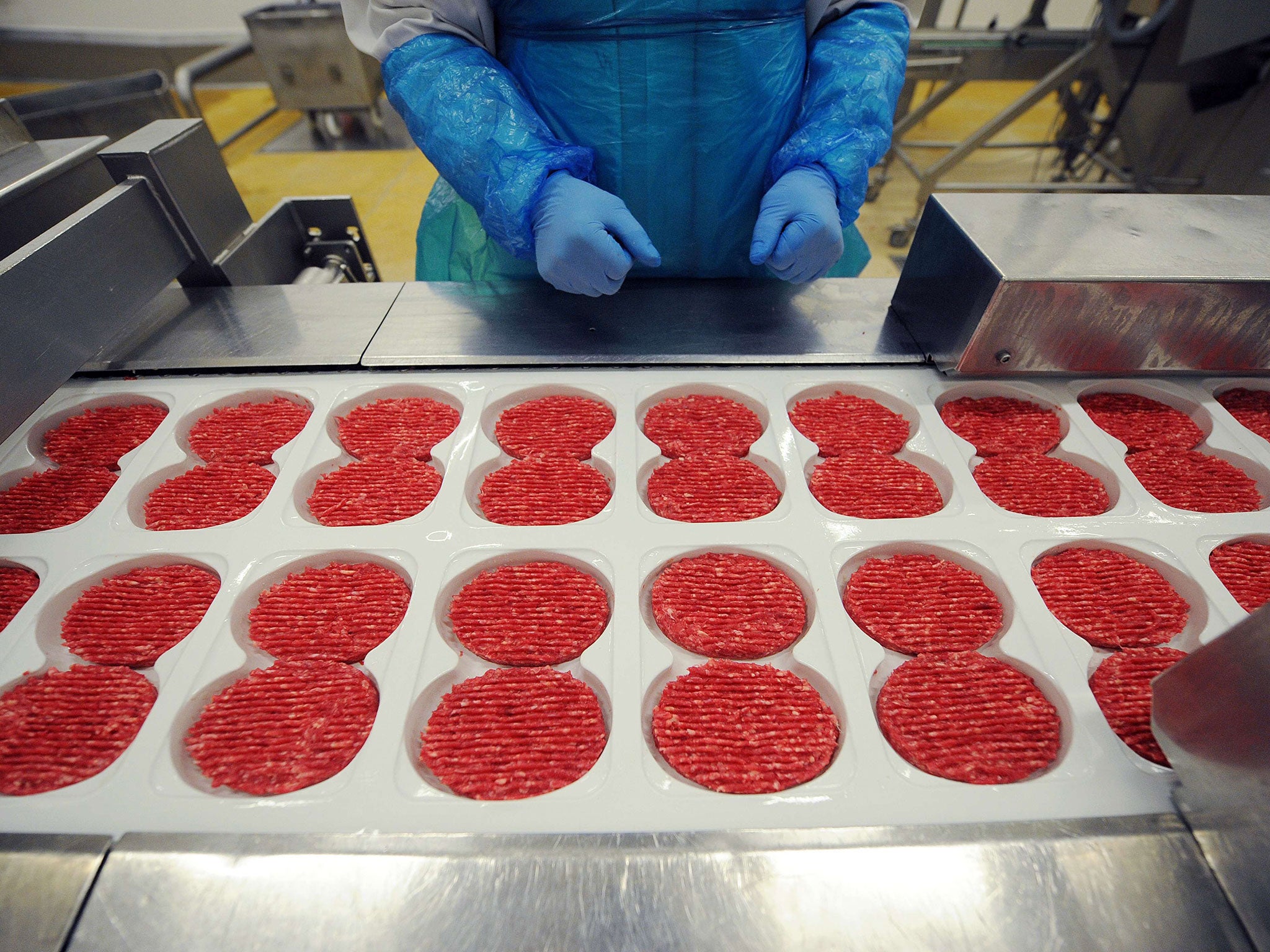Horsemeat scandal report calls for national food crime unit
It called for a 'zero tolerance' approach to food fraud to prevent the same thing happening again in the future

Your support helps us to tell the story
From reproductive rights to climate change to Big Tech, The Independent is on the ground when the story is developing. Whether it's investigating the financials of Elon Musk's pro-Trump PAC or producing our latest documentary, 'The A Word', which shines a light on the American women fighting for reproductive rights, we know how important it is to parse out the facts from the messaging.
At such a critical moment in US history, we need reporters on the ground. Your donation allows us to keep sending journalists to speak to both sides of the story.
The Independent is trusted by Americans across the entire political spectrum. And unlike many other quality news outlets, we choose not to lock Americans out of our reporting and analysis with paywalls. We believe quality journalism should be available to everyone, paid for by those who can afford it.
Your support makes all the difference.Another horsemeat scandal is inevitable unless a dedicated food fraud unit is launched to infiltrate the highly organised criminal traders of illegal meats, according to an independent review.
Supermarkets have also been called to carry out greater checks on their supply chains to avoid future adulteration or could face arrest for handling criminal property. It was especially critical of retailers who buy meats at well-below recognised market prices.
The report by Professor Chris Elliott, ordered by the Government into last year’s horsemeat scandal, called for the Food Standards Agency to set up a national food crime unit which can work alongside similar organisations in other EU countries.
The author stressed: “No part [of the report] can be considered in isolation and cherry picking of the recommendations will not work.”
It called for a “zero tolerance” approach to food fraud through increasing intelligence gathering, unannounced audit checks by the industry, improved testing and a bigger role for public officials.
However, cuts to local authority budgets have meant councils are “unable to effectively protect consumers” and public testing services are struggling to survive.
The report also found that the original investigations into the scandal was carried out by regulators with “at least in part with insufficient experience or expertise in the investigation of serious food crime and none at all in tackling complex organised crime.”
Criticism has been levelled at the report for being published later than billed, with accusations of Government interference over whether ministers were wrong to remove responsibility from the FSA for food authenticity.
It did warn that greater clarity was needed over which department and organisation is responsible for what area.
It said the Department for Environment, Department of Health and FSA must work closer together “to ensure there is no repeat of the confusion which occurred at the beginning of the horsemeat incident.”
The Government welcomed today’s report and agreed to adopt its main recommendations, including a food crime unit within the FSA and improve coordination across different departments.
However, Labour shadow environment secretary Maria Eagle MP pointed out the long wait for changes.
She said: “David Cameron approved changes to the structures of government that weakened consumer protection, culminating in the horsemeat scandal. The confusion this caused is highlighted in today's report yet the Government have totally failed to admit they got this wrong and have still not reversed the misguided decision to fragment the Food Standards Agency. The Government must now show leadership and establish an effective food crime unit as soon as possible.“
Industry heads also welcomed the report, which produced an interim version in December, warning that the food and drink industry was vulnerable to unscrupulous suppliers.
The British Retail Consortium, which represents the vast majority of high street retailers, said its members had tightened up its testing and was better protected to avoid future scandals.
However, Annette Barker, forensic director at KPMG, warned that unless organisations tackle weak links in their supply chain, they risk exposure to fraud and a repeat of the crisis.
She warned: “The pressure to keep a steady supply of food at reasonable prices remains high which leads to suppliers looking for ways to keep costs competitive. Some food supply chains have become increasingly complex with agreements spanning the globe. Cost pressures and increased complexity naturally bring an increased risk of fraud.”
The warning comes as supermarkets are in a price war that has already claimed the scalp of Tesco’s former chief executive and sees more than half the country now visiting one of the discounters Aldi and Lidl in the past three months.
Join our commenting forum
Join thought-provoking conversations, follow other Independent readers and see their replies
Comments